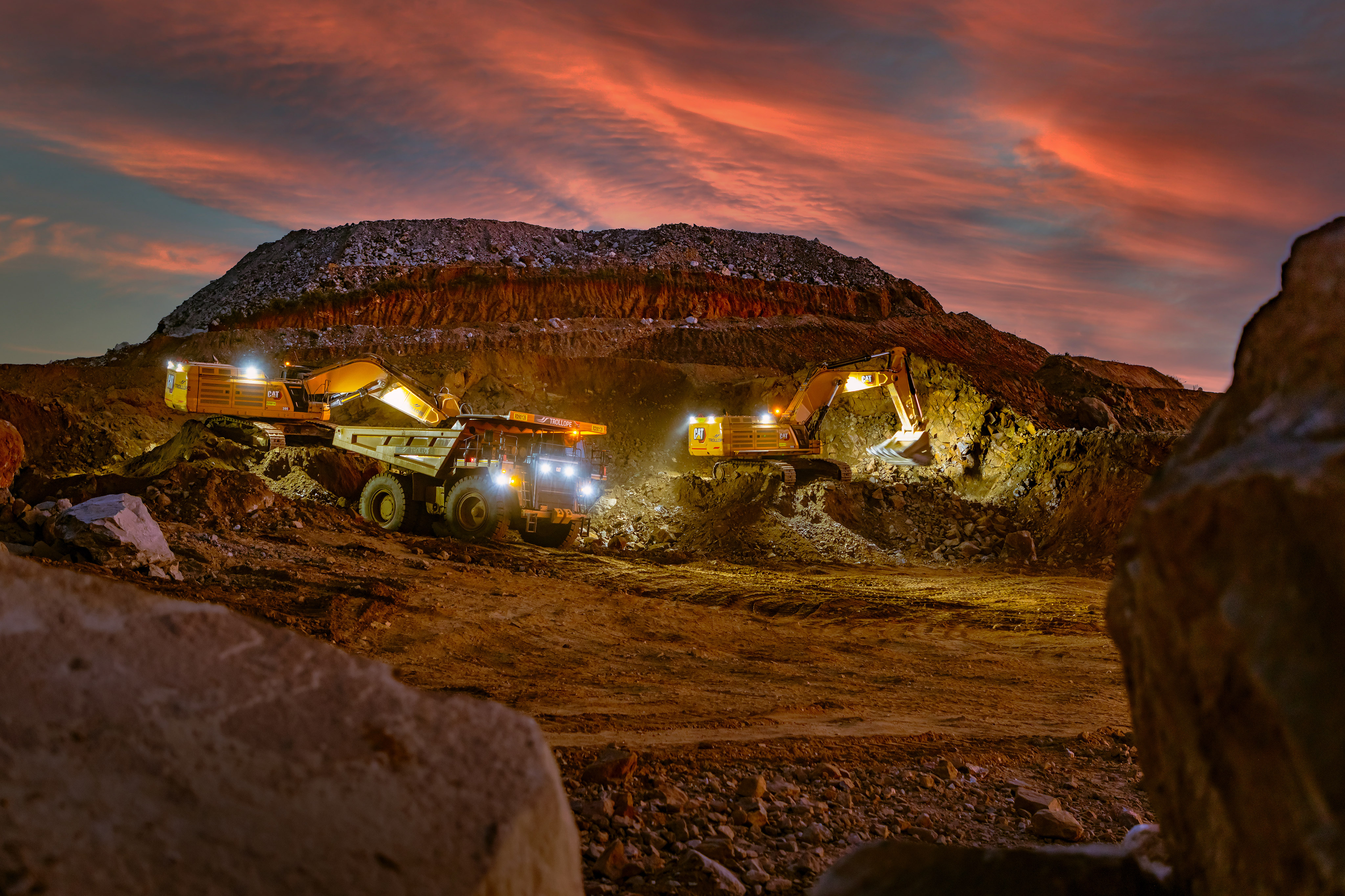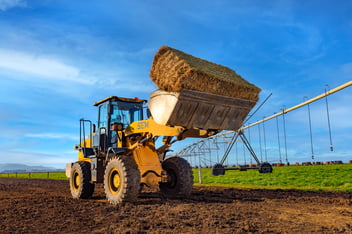Strategic Equipment Choices rent vs own
Deciding whether equipment rental or purchase of heavy machinery is right for your business goes beyond upfront costs. It’s a strategic choice that shapes your business operations and long-term vision. We’ll explore the financial, operational, and project-based factors that will help you choose the right path.
The Critical Equipment Dilemma: Rent vs Own?
Every business that relies on heavy machinery will inevitably face a familiar challenge: how best to secure the right machinery essential for your operations, while also balancing costs, cash flow, and long-term goals. It comes down to equipment rental vs purchase, but which is best? Purchasing equipment requires significant capital investment and predictable project demands, while renting equipment introduces complexity with availability and cost over time. So, how do you ensure you have the right equipment, at the right time, without compromising financial agility or long-term operational goals? Is it best to buy or rent heavy machinery?
The right decision will change depending on your unique business circumstances––your operational needs, financial situation, and long-term vision. To make the most informed choice, you should move beyond simple cost comparisons and weigh the full strategic, operational, and financial implications of renting versus owning.
Understanding Your Business: The Foundation of the Decision
Before you can even begin to consider equipment rental versus purchase, you need to ensure you have a deep, thorough understanding of your own business and operational context. This understanding is the foundation upon which you can base all operational and strategic decisions. Consider these key factors when evaluating your business context:
-
Project scale and duration: Are you seeking to buy or rent heavy machinery for a short-term contract or seasonal peak in which you only require temporary access? Contrastingly, are you managing long-term projects in which ownership would make the most sense?
-
Capital allocation and cash flow: Can your business afford a large upfront investment, or is liquidity better preserved for other priorities? Do you have reliable, consistent financing options that can help support upfront investment?
-
Maintenance and operational responsibility: With renting and owning, it’s important to ascertain who will handle ongoing upkeep, inspections, repairs, and associated costs.
- Utilisation rates: How often will the equipment actually be in use? Idle machinery will incur storage and maintenance costs, reducing ROI.
For expert advice, include a third party to assist in this operational evaluation. Objective advice with expert guidance will ensure you avoid missteps and align decisions with your long-term goals.
The Case for Renting Equipment: Flexibility and Financial Agility
CAT® equipment rental and renting heavy machinery guarantees flexibility, especially for businesses with changing workloads. It is often the best choice in the following scenarios:
- Short-term projects: When machinery is only needed for a defined period, renting avoids the long-term financial and logistical commitment of ownership.
- Seasonal or fluctuating demand: Businesses that experience peaks and pits, like construction or landscaping, can change the size of their fleet without incurring the cost of idle machinery.
- Specialised equipment needs: Renting equipment allows access to niche or specialised machinery without the expense of a full purchase on equipment that may not be used frequently. Barloworld Equipment rentals offer a full suite of specialised machinery for any unique project need.
- Lower upfront capital: By avoiding large purchase costs, businesses can preserve cash flow and resources, which can then be allocated to other investments.
- Reduced maintenance burden: Rental providers typically handle maintenance, storage, and insurance, freeing you from the financial and psychological burden so you can focus on project execution.
The Case for Owning: Control and Long-Term Value
On the other hand, in the debate of equipment rental vs purchase, owning equipment is the best option for businesses with consistent, long-term operational needs. You should consider ownership if your business goals align with these scenarios:
- High, consistent utilisation: When machinery will be used frequently, ownership will maximise ROI over the equipment’s lifecycle.
- Strategic asset control: Ownership means you have full control over scheduling, modifications, and customisation of specialised applications.
- Depreciation and tax benefits: Long-term asset ownership can provide financial advantages for your business through equity building, potential cost savings over time, and regional tax incentives.
- Building equity: Unlike rental payments, purchased equipment becomes a tangible asset on your balance sheet, retaining value in real time.
- Dedicated fleet availability: Owning ensures equipment is always on hand for core operational needs, avoiding delays or issues with rental logistics.
For example, a mining company with multi-year contracts would be best served investing in ownership of a dedicated fleet of CAT® earthmoving equipment. High utilisation rates and reliable demand make ownership the more cost-effective and strategic choice.
Partnership: Guiding Your Informed Choice
The decision to rent or own is rarely straightforward, which is why working with the right partner is essential - not just for access to reliable, cost-effective equipment, but also for the expertise to guide your choice. Barloworld Equipment’s specialised experts provide more than just CAT® equipment rental. Our full suite of services includes:
- A comprehensive fleet: Whether you need short-term rental solutions or long-term ownership options, our range covers every project need across all large-scale industries. As the official partner of CAT, we provide expert advice tailored to your business context, ensuring you’ve got the right CAT machines to complete any job. Explore BWE’s comprehensive rental and sales fleets to see what options are available.
- Consultative experts: We partner with you to thoroughly understand and analyse your operational context, financial priorities, and utilisation forecasts. This means we can expertly consider the pros and cons of each recruitment rental vs purchase option against your particular project needs.
- Holistic support: From ongoing maintenance, parts supply, and uptime guarantees, BWE’s experts provide ongoing support and advice regardless of whether you rent vs own.
So, do you buy or rent heavy machinery? The solution is the one that aligns with your specific business goals, projects, operational needs, and financial strategy. By partnering with BWE, you gain access to world-class equipment and experts, tailored insights so you can make the choice with confidence.
Ready to find the right fit for your business?
 Articulated trucks
Articulated trucks
-1.webp) Dozers
Dozers
-1-1.png) Backhoe Loaders
Backhoe Loaders
 Hydraulic Mining Shovels
Hydraulic Mining Shovels
 ELECTRIC POWER
ELECTRIC POWER
 MARINE POWER
MARINE POWER
 INDUSTRIAL
INDUSTRIAL
 OIL AND GAS
OIL AND GAS
.png) RENTALS
RENTALS














